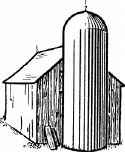
|
|||||||||||||||||||||||||||||||||||||||||||||||||||||
|
Hey Sulzberger, there's money over here I was talking with Scoble on the phone today, and said some things there that bear repeating here. 1. I wasn't happy in the 90s with the way Microsoft reacted to Netscape and the web. I thought they were being too aggressive, great creative stuff was happening -- we didn't need a destructive force. I liked how the web broke away from the tech business, I didn't want it to get sucked back in. Microsoft tried, and for a while it looked like they had quelled the rebellion, but then it broke loose again, for good.
3. Japan can lay broadband pipe for $20 per houshold and it's much faster than anything we have in the US. It costs us $800 per household. Maybe we should steal a page from Microsoft's playbook and start getting aggressive in ways that would have frightened me in 1995. As a country, we need to be more competitive. Start right there. Bluntly: Why can't we lay broadband pipe for roughly the same price Japan does? 4. Maybe Bill Gates should offer his services as a competitiveness consultant. Josh is right, URL shorteners are risky
Joshua Schachter writes today about their dangers. We need to prepare for the day when N of the URL shorteners go out of business. When that happens a large part of the web will die. It will not be a good day. Plan on it, like we should have planned on housing prices turning down, and the economy falling into depression as a result. Plan on it like we should plan on the polar ice caps melting and the oceans rising 100 feet. Let's get used to planning for the obvious failures in our future. We're going to get good at it, or suffer. One easy way to lower the cost of URL-shortening is to use our own domain names in place of tinyurl.xom, bit.ly, tr.im, et al. Any one of those services could take the lead here by allowing for that. Let me map my own domain onto theirs, easily back up all my data, and give me the ability to switch services when I want, or when I need to. PS: Twitter could fix this problem right away if they wanted to. Jason Kottke explains how. Why people care how Twitter makes money First a story.. I went to grad school in Madison, which is a great place except in the winter, when it's realllly cold. But it's still great then, if you know what to eat. You want to fill your stomach with something dense and warm. There was this place down the street from where I lived that served something called a Myles Teddy Wedger. I have no idea how it got its name, but it's a pastry, filled with meat, potatoes and onions, served really hot. You could buy one of these and carry it to class with you, walking even a mile, and when you got there it would still be hot! That's how dense it was. So as you're walking you can think of the MTW in your knapsack and psychically the thought would keep you warm. Okay that had nothing to do with why people want to know how Twitter is going to make money.
See, their business model conflicted with our values. So it's possible for a business to use its profits for evil. And we couldn't buy Domino's pizza and keep a clear conscience. And it could turn out, when Twitter reveals its business model, that it's something we don't like. We won't know where we, the users, fit in -- until they tell us how they're going to make money. And when they tell us, we may not like it. PS: There's a myth in NY that Ray's makes the best pizza. Which one? Ahh. Practically every pizza place in NY is named Ray's. Then there's Original Ray's. Quite a few of those too. |
"The protoblogger." - NY Times.
"The father of modern-day content distribution." - PC World.
One of BusinessWeek's 25 Most Influential People on the Web. "Helped popularize blogging, podcasting and RSS." - Time.
"The father of blogging and RSS." - BBC.
"RSS was born in 1997 out of the confluence of Dave Winer's 'Really Simple Syndication' technology, used to push out blog updates, and Netscape's 'Rich Site Summary', which allowed users to create custom Netscape home pages with regularly updated data flows." - Tim O'Reilly.
My most recent trivia on Twitter. On This Day In: 2008 2007 2006 2005 2004 2003 2002 2001 2000 1999 1998 1997. |
||||||||||||||||||||||||||||||||||||||||||||||||||||
|
© Copyright 1997-2009 Dave Winer. Previous / Next |
|||||||||||||||||||||||||||||||||||||||||||||||||||||

 Right now, these days, URL shorteners are a necessary evil. It's part of the price we're all paying for Twitter's building on SMS, I guess. I hardly use SMS, so this is a price I'm not happy about paying.
Right now, these days, URL shorteners are a necessary evil. It's part of the price we're all paying for Twitter's building on SMS, I guess. I hardly use SMS, so this is a price I'm not happy about paying.


